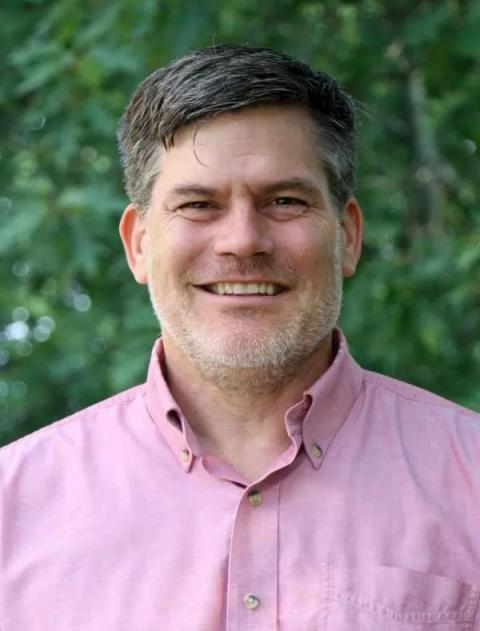The School of Marine Science and Ocean Engineering is led by the Executive Committee and the External Advisory Board. Additional committees exist to help manage SMSOE's many moving parts: the Education Committee, the Facilities Committee, the Outreach Committee, and the Research Committee.

Erik Chapman will serve as the interim director of the SMSOE effective February 15, 2025. Erik's long-standing role as NH Sea Grant Director, his history of engagement with SMSOE as Assistant Director for Outreach, and his track record as a trusted collaborator for both on-and off-campus partners make him an ideal candidate for this position.
Erik is excited to collaborate with the UNH marine community and has demonstrated genuine passion for that mission and presents a clear understanding of both challenges and opportunities that face the UNH marine community at this time.
“I believe in the collective wisdom of UNH leadership and marine community, and I’m excited for the opportunity to work together to shape the vision for SMSOE’s future.”
– Erik Chapman, Interim Director of SMSOE
Committees
- Erik Chapman, Interim Director, School of Marine Science and Ocean Engineering
- Easton White, Marine Biology Program Representative
- Nate Rennels, Chair, Facilities Committee
- Kai Ziervogel, Education Committee
- David Burdick, Research Committee
- David Fredriksson, Director, Center for Sustainable Seafood Systems
- Robert Letscher, Program Coordinator, Oceanography
- Sara Morris, Executive Director, Shoals Marine Laboratory
- Kalle Matso, Director, Piscataqua Region Estuaries Partnership
The overall mission of the Education and Curriculum Committee is to oversee the evolution of formal graduate education aligned with the research programs of the School, with a primary focus on the three graduate programs that are affiliated with the school: Marine Biology, Ocean Engineering and Oceanography.
The Education Committee's goals are as follows:
- Foster integrated marine science and ocean engineering education on campus.
- Support the graduate programs related to marine science and ocean engineering.
- Enhance teaching collaboration among faculty across the broad spectrum of marine-related disciplines including the social sciences and humanities.
The members of this committee are listed below:
The Facilities Committee is charged with oversight of the SMSOE facilities, vessels, common scientific equipment, and support programs (e.g. Diving). The committee will work with the SMSOE Director and the Research, Education, and Outreach Committees to define priority areas of facility and research instrumentation need and opportunity, and take a lead in pursuing funding opportunities to address common needs.
The members of this committee are listed below:
The Outreach Committee is charged to provide input to the Executive Committee on issues related to Outreach for the SMSOE. The committee will work with individual faculty members and programs with significant outreach/extension programs (e.g. NH Sea Grant and JHC/CCOM) to advance outreach/extension activities for the SMSOE. The overall goal of the Committee is to collaboratively facilitate the flow of knowledge among SMSOE personnel and stakeholders in order to:
- inform research priorities and to expand research opportunities;
- make connections and build capacities for engaged research at UNH;
- educate the public; and
- transfer knowledge and information to society.
The members of this committee are listed below:
The Research Committee has as its mission the formation of interdisciplinary research teams targeting fundable problems of regional and national significance in marine science and ocean engineering. Based on the recommendation of the Research Committee, the Executive Committee of SMSOE will provide the necessary resources to these groups or to individuals, so that proposals can be developed and submitted to the State, the Federal Government and/or the private sector responding to interdisciplinary funding opportunities and addressing solutions to identified problems.
The members of this committee are listed below: